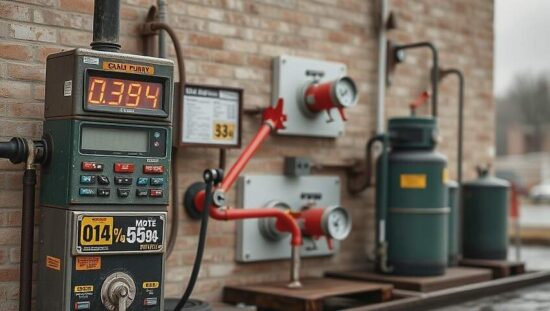Energy Prices in Germany Rise Following Israeli Attack on Iran, Analyst Says
According to a recent analysis by the price comparison portal Verivox, the cost of heating oil in Germany has increased significantly following the Israeli attack on Iran. The analysis, which was reported by the Sunday editions of the Funke Media Group, shows that the price of 100 liters of heating oil has risen to around 93 euros, up from an average of 87 euros in May, the lowest price seen in two years.
Despite the recent price increase, it may still be worth filling up the tank, the analysis suggests, as the long-term prices are still relatively low. The expert at Verivox, Thorsten Storck, points out that the prices could still rise further due to the ongoing geopolitical uncertainty and increasing CO2 costs in the coming year.
The Israeli attack on Iran’s nuclear facilities on Friday triggered a nervous market reaction, with oil prices and, subsequently, heating oil prices rising sharply. The average price of 100 liters of heating oil in Germany was around 87 euros in May, with the calculation by Verivox showing that this would translate to heating costs of around 1,739 euros for a typical one-family home with an annual consumption of 2,000 liters.
Since the price peak in September 2023, when 100 liters of heating oil cost around 119 euros, the prices have decreased by around 27 percent, with the current price of 93 euros being a significant increase. However, in the long-term perspective, the prices remain relatively low, with the average price in 2024 expected to be around 99 euros, in 2023 around 104 euros and in 2022 even around 131 euros per 100 liters.
The main reason for the general price decline was the development on the global market, with oil-producing countries agreeing to increase production in early May, leading to a significant drop in oil prices. Uncertainties surrounding the US’s protectionist trade policy and the fear of a global recession also contributed to the price decline. Currently, the tensions in the Middle East are causing market unease and, subsequently, rising prices.
“Finding the best time to buy is hardly possible. Despite the already significantly increased prices, it can still be worth filling up the tank for the next winter” said Thorsten Storck, an energy expert at Verivox, in an interview with the Funke Media Group.
“Prices are still relatively low, but the further development in the Middle East conflict remains unclear and prices could still rise further. Additionally, increasing CO2 costs at the turn of the year will also put more pressure on prices” Storck added.
From January 2026, the so-called CO2 price will be within a corridor of 55 to 65 euros per ton, which is up to 10 euros more per ton of CO2 compared to this year. The costs for a one-family home with an annual consumption of 2,000 liters of heating oil, resulting from the CO2 price, will increase from 350 euros to up to 414 euros, according to Verivox’s calculations.
In light of the expected price development, the expert recommends that homeowners inform themselves about alternative heating options: “Currently, heating with oil is even cheaper than with natural gas. However, heating oil will likely become more expensive in the long run, mainly due to the steeper increase in CO2 costs” Storck said. Those who still operate outdated systems should inform themselves about modernization options early on. The state currently supports the transition to a more environmentally friendly heating system with up to 70 percent of the acquisition costs.





